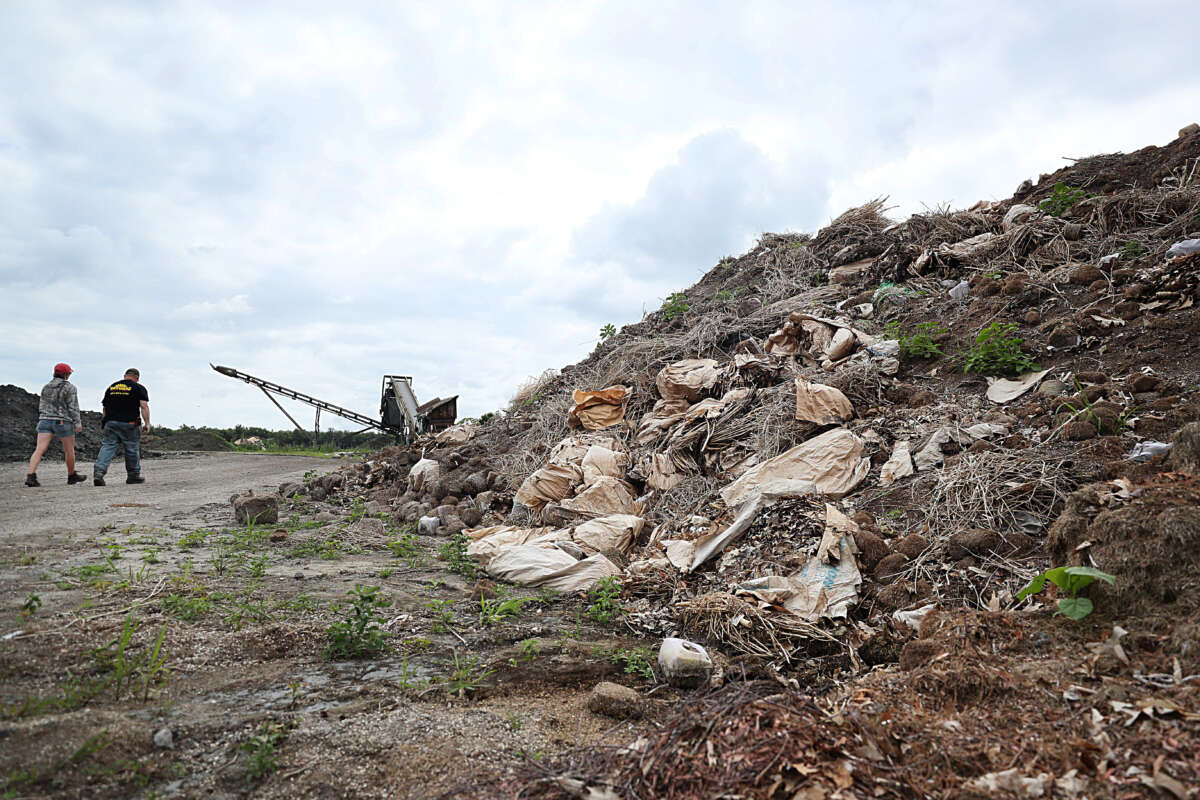Did you know that Truthout is a nonprofit and independently funded by readers like you? If you value what we do, please support our work with a donation.
U.S. regulators failed to prevent toxic PFAS in fertilizers from contaminating farmland across the country, alleges a lawsuit filed this week by a watchdog group on behalf of two Texas farm families who suffered health problems after their properties were polluted.
The Environmental Protection Agency (EPA) violated the Clean Water Act by failing to identify at least 18 per- and polyfluoroalkyl substances (PFAS) in treated sewage sludge spread on farmland even though scientific evidence suggests the chemicals are present in the sludge, according to the complaint filed June 6 in the U.S. District Court for the District of Columbia by the nonprofit Public Employees for Environmental Responsibility (PEER).
The EPA also neglected to develop regulations restricting several other PFAS chemicals the agency has previously recognized exist in sewage sludge, according to the complaint. As a result of its inaction, the EPA has enabled “millions of acres” of land to become contaminated with PFAS-laced sewage sludge, exposing many communities to the harmful chemicals, the lawsuit alleges.
“PFAS poisoning of farmlands is fast becoming a national agricultural emergency,” PEER attorney Laura Dumais said in a press release. “EPA needs to act immediately to protect farmers and our food supply from this toxic mess.”
The EPA declined to comment.
PFAS are a class of nearly 15,000 human-made chemicals that have been linked to many health problems, including certain cancers and reproductive issues. These highly persistent so-called “forever chemicals” have been used for decades in consumer products, including non-stick cookware, food packaging, and industrial products, and are widely present in the environment.
In April, the EPA enacted the first legally-enforceable limits for levels of six PFAS in drinking water and finalized a rule designating as hazardous substances two widespread PFAS, perfluorooctane sulfonic acid (PFOS) and perfluorooctanoic acid (PFOA). The agency is conducting a risk assessment to evaluate PFOS and PFOA in biosolids, which the agency says it plans to publish by the end of 2024.
The plaintiffs, who live near Fort Worth, filed a lawsuit in February against the company Synagro, alleging that their farms were “poisoned” after contaminated sewage sludge was spread on their neighbor’s property in late 2022. The farmers experienced health declines, their animals became ill, and their property values were destroyed as a result of PFAS pollution that leached onto their land, they alleged.
Later that month, PEER and the farmers sent EPA Administrator Michael Regan a notice of intent to sue for the alleged regulatory failures and Clean Water Act violations.
“In PEER’s discussions with EPA staff following the filing of its Notice of Intent to Sue this February, it became clear that the agency has no definitive timeline for regulatory action and that the scope of its current efforts would be inadequate,” says the group’s press release. “PEER believes that litigation is the only avenue for establishing a concrete and expeditious timeline for stemming what is becoming a threat to America’s food security.”
Maine, the only state to systematically test farmland for PFAS, has so far found the chemicals on more than 70 farms. The contamination is largely attributed to sewage sludge mixed with paper mill waste that was spread on Maine farmland decades ago. The state has developed a $65 million PFAS fund to support impacted farmers.
There are no national requirements to test sewage sludge for PFAS and about 60% of sewage sludge produced annually by U.S. wastewater treatment plants is spread on farm fields, according to the EPA.
Some U.S. lawmakers are pushing for a federal relief program for farmers impacted by PFAS contamination.
Matching Opportunity Extended: Please support Truthout today!
Our end-of-year fundraiser is over, but our donation matching opportunity has been extended! All donations to Truthout will be matched dollar for dollar for a limited time.
Your one-time gift today will be matched immediately. Your monthly donation will be matched for the whole first year, doubling your impact.
This matching gift comes at a critical time. As Trump attempts to silence dissenting voices and oppositional nonprofits, reader support is our best defense against the right-wing agenda.
Help Truthout confront Trump’s fascism in 2026, and have your donation matched now!
